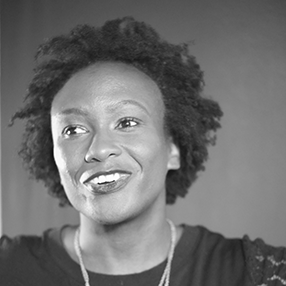Red-Shouldered Hawk
We met in the middle of the street only to discuss
the Buteo lineatus, but we simply said hawk
because we knew nothing of Latin. We knew nothing
of red in the shoulder, of true hawks versus buzzards,
or what time they started their mornings,
what type of snake they stooped low
and swift to eat. We knew nothing.
Or, I should say, at least I knew nothing,
and he said nothing of what he knew that day
except one thing he said he thought, but now I say
he knew: I’m going to die soon, my neighbor said to me
and assured he had no diagnosis, just a thought. He said it
just two weeks before he died outdoors just
twenty steps away from where we stood that day—
he and I between the porch I returned to and twisted
the key to my door to cross the threshold into my familiar
like always I do and the garage he returned to
and twisted some wrench probably on a knob of the
El Camino like always he did every day when usually
I’d wave briefly en route from carport to door
sometimes saying “how’s it going,” expecting
only the “fine” I had time to digest. Except today
when I stepped out of my car, he waved me over to see
what I now know to call the Buteo. When first I read its
Latin name, I pronounced it boo-TAY-oh
before learning it’s more like saying beauty (oh!).
I can’t believe I booed when it’s always carrying awe.
Like on this day, the buzzard—red-shouldered and
usually nesting in the white pine—cast a shadow
upon my lawn just as I parked, and stared back at us—
my mesmerized neighbor and me—perched, probably hunting,
in the leaning eastern hemlock in my yard. Though
back then I think I only called it a tree because I knew nothing
about distinguishing evergreens because I don’t think I ever asked
or wondered or searched yet. I knew nothing about how they thrive
in the understory. Their cones, tiny. And when they think
they’re dying, they make more cones than ever before. How did he
know? Who did he ask and what did he search to find
the date that he might die, and how did he know
to say soon to me and only me and then, right there
in that garage with his wrench and the some other parts
unknown for the El Camino and the radio loud as always
it was, stoop down, his pledge hand anxious against his chest,
and never rise again? And now the hemlock, which also goes
by Tsuga canadensis, which is part Latin, part Japanese,
still leans, still looks like it might fall any day now, weighed
down by its ever-increasing tiny fists. And the Buteo returns
each winter to reclaim the white pine before spring.
Most hawks die by accident—collision, predation, disease.
But when it survives long enough to know it’s dying, it may
find a familiar tree and let its breath weaken in a dark cranny.
And my neighbor’s wife and I now meet in the middle,
sometimes even discussing birds but never discussing
that day. And I brought her roses on that first anniversary
without him because we sometimes discuss a little more
than birds. And the Buteo often soar in twos, sometimes solo.
So high I cannot see their shoulders, but I know their voices
now and can name them even when I don’t see them. No matter
how high they fly, they see me, though I don’t concern them.
They watch a cottonmouth, slender and sliding
silent in tall grass. And the cardinals don’t sing.
They don’t go mute, either. They tink.
Close to their nests and in their favorite trees, they know
when the hawk looms. And their voices turn
metallic: tink, tink, tink.
Copyright © 2024 by Ciona Rouse. Originally published in Poem-a-Day on March 28, 2024, by the Academy of American Poets.
“This day with my neighbor and our portentous moment always felt poetic to me—if poetic means ‘sacred,’ or if poetic means ‘unknowing,’ or if poetic means something more scientific and possibly flawed, like attempting to name a creature so that we can identify and return to it without ever being able to know what it knows its name to be. I keep trying to recall and hold and touch that moment, and then let it go again.”
—Ciona Rouse

